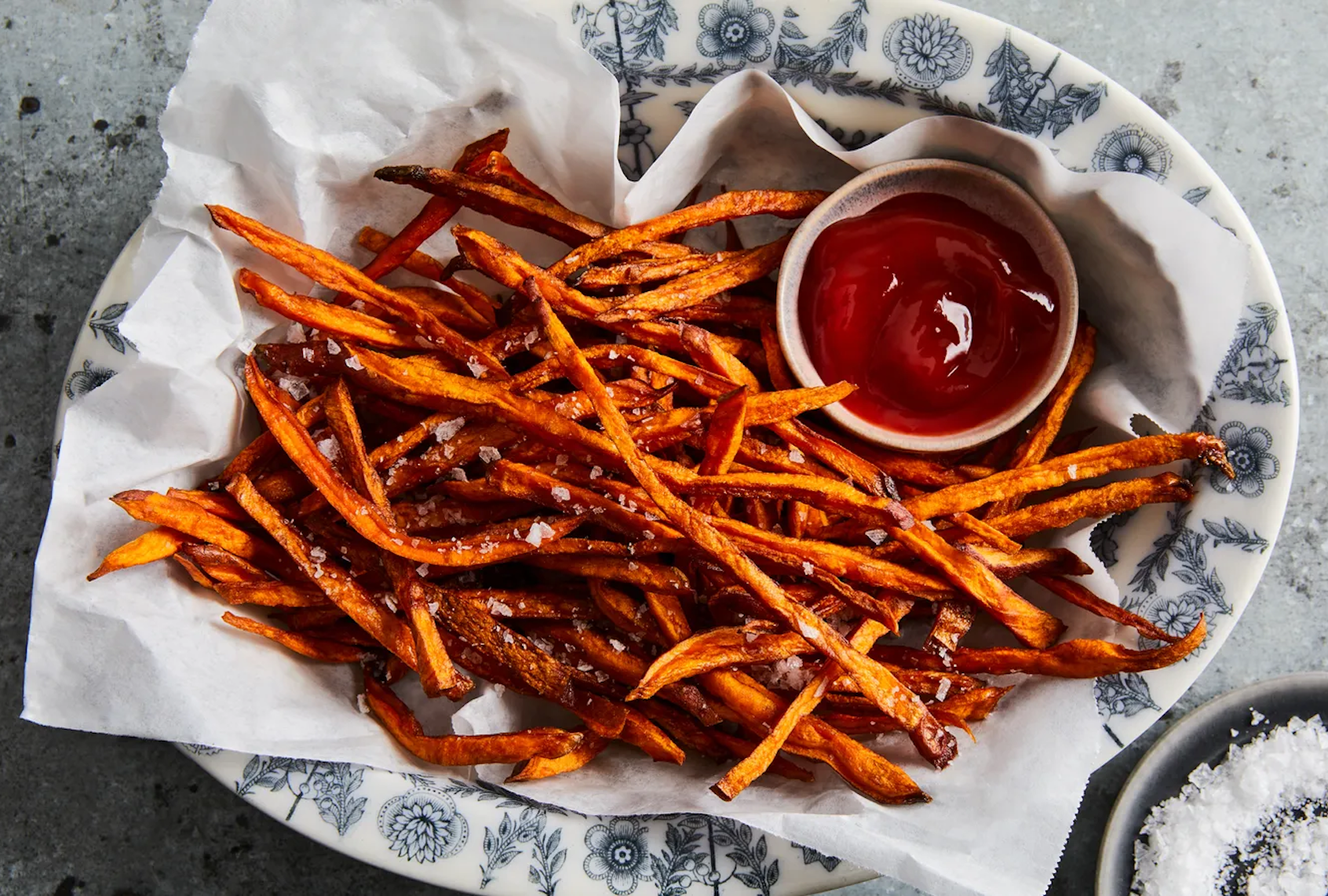Vegetable oil is a product on its own, but it’s also a category. Grapeseed, avocado, safflower, peanut, and coconut oils are all considered vegetable oils. Vegetable oil typically refers to soybean oil: flavorless, scentless, colorless, and with a high smoke point — the temperature at which oil starts to burn and emit smoke — that’s ideal for high-heat cooking. If you cook with it on a regular basis, you’ve probably wondered what the best substitutes for vegetable oil are, and we’re here to break it down.
If vegetable oil’s purpose is simply to conduct heat quickly and efficiently without imparting much flavor in the process, why reach for a more expensive variety? The author of The Big Book of Healthy Cooking Oils Lisa Howard told TIME Magazine, “vegetable oil is guaranteed to be highly processed.”
“It’s called ‘vegetable’ so that the manufacturers can substitute whatever commodity oil they want — soy, corn, cottonseed, canola — without having to print a new label,” Howard explains. In lieu of cold-pressing, oil-rich ingredients are combined with solvents and “pushed past their heat tolerance,” effectively killing off all nutrients. The resulting oils “have become rancid in the processing,” writes Howard. To add insult to injury, the production of many of these untraceable oils has been linked with land degradation.
Picking a single-ingredient oil instead of vegetable oil means knowing exactly what you’re using to cook your food. Here are seven of the best substitutes for vegetable oil, for a variety of applications from searing to sautéing, broiling, baking, frying, and finishing.
* * *
7 best substitutes for vegetable oil
1. Extra-Virgin Olive
The odds are good that extra-virgin olive oil is already a valued member of your pantry, but its advantages are no less worth reiterating: It’s unrefined — that’s what “extra-virgin” means — full of good-for-you fats, incredibly versatile and wonderfully delicious. Olive oil’s smoke point is 350°F, the lowest on this list, so reserve it for lower-heat methods like poaching, searing, and sautéing, or no-heat recipes like salad dressing (though there are plenty of other oils you can use for those, too).
2. Canola
Not to be confused with Mazola (a blend of corn and canola oils), canola oil is extracted from the canola seed — a type of rapeseed related to turnips, Brussels sprouts, and cabbage specially bred for oil production. Its smoke point is 400°F, which makes it a sensible option for at-home frying — sweet potato fries, anyone?.
3. Filtered Coconut
Coconut oil is made from dried, crushed coconut flesh, or boiled coconut milk. If your recipe welcomes a mild infusion of coconut flavor and doesn’t require the application of very high heat, go for virgin or unrefined coconut oil, with a smoke point of 350°F: perfect for in granolas or dairy-free cookies. Filtered or refined coconut oil has a smoke point of 400°F — great for frying base aromatics.
4. Grapeseed
Grapeseed oil is made from, you guessed it: grape seeds, a by-product of winemaking. It’s flavorless and can be heated up to 420°F. Use it to roast vegetables, make perfect stovetop popcorn, and make delicious condiments like homemade chili crisp and aioli.
5. Safflower
Safflower oil is extracted from seeds of the prickly safflower, the petals of which are sometimes used as imitation saffron. Because of its neutral flavor, it’s often used in salad dressings and mayonnaise. Refined safflower oil’s smoke point is on the higher end — 510°F — which makes it a suitable choice for broiling, and a natural choice for deep-frying everything from tortilla chips to oysters.
6. Avocado
Like coconut oil, avocado oil is one of the few oils extracted from fruit flesh, not seeds. Even unrefined, avocado oil’s smoke point of 480°F is higher than that of olive, canola, and grapeseed. That smoke point shoots up to 520°F if you’re using refined avocado oil. As with safflower oil, avocado oil is a great choice for very high-heat cooking methods, like shallow and deep-frying, as well as grilling.
7. Peanut
With a high smoke point of 450°F, peanut oil is an excellent, much less-processed substitute for vegetable oil. It’s made solely from peanuts, but imparts no discernible peanut odor or flavor — especially in baked recipes like cookies or when used for deep-frying. Those with allergies are generally safe to consume foods made with refined peanut oil, which loses much of its allergen content in the refining process, but should avoid cold-pressed peanut oil.



